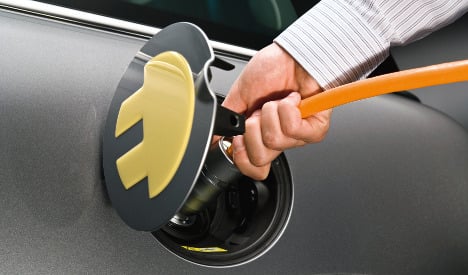But getting a million electric cars on Germany’s streets is just the first step in Berlin’s “national electro-mobility plan,” which was approved by the cabinet.
“In 2030, this could be over five million. By 2050, traffic in towns and cities could be predominantly without fossil fuels,” the government’s proposal ambitiously states.
Berlin plans to spark development in electric cars by offering incentives for research in areas such as batteries and recharging systems, as it battles to catch up with Asian firms which have zoomed ahead of their German rivals.
“We are very confident that we in Germany can provide enough of an impulse to compete with the United States and Asia,” Transport Minister Wolfgang Tiefensee told reporters.
“The Japanese are strong in hybrid technology but … the big markets in Europe, the United States and Asia are still open,” he added.
He said the goal of the plan was to “bring electro-mobility as quickly as possible into everyday life.”
The plan added that Berlin is “examining an incentive programme for the purchase of 100,000 electric cars,” but it nevertheless drew fire from green groups.
Environmentalists had called for a subsidy of around €5,000 ($7,050) for consumers to buy electric cars along the lines of Berlin’s €5-billion “cash-for-clunkers” scheme to support the traditional auto industry rolled out in January.
“The government has introduced a subsidy to sell an old technology but has not put in place incentives to buy the new electric vehicles,” Renate Künast, parliamentary group leader of the Green party, told the Weser-Kurier regional daily.
The motorists club of Germany (VCD) was also sharply critical of the proposals, saying flatly electric cars would not save the climate in the foreseeable future.
“The government says there could be a million electric cars on the road by 2020, but this is in comparison to 50 million petrol and diesel vehicles,” said Werner Korn from the VCD.
However, the German Association for Information Technology, Telecommunications and New Media (BITKOM), welcomed the plans, describing them as a “milestone towards improving the sustainability of road traffic.”
German luxury car maker BMW has already teamed up with auto parts maker Bosch and its Korean partner Samsung to supply lithium-ion batteries for a future electric city car.
Volkswagen hopes to turn out its first all-electric car in 2013, VW head Martin Winterkorn said in July. Meanwhile, Daimler launched its first hybrid model earlier in June, almost 10 years after the market leader, Japan’s Toyota.



 Please whitelist us to continue reading.
Please whitelist us to continue reading.
Member comments